Women are extremely successful in all fields of work today and may opt to have late pregnancies, but with modern lifestyle and stress by the time they decide on motherhood many end up in Low ovarian reserve. One of the biggest concerns women face today while planning a pregnancy is low AMH (Anti-Müllerian Hormone)levels. AMH is a crucial marker of a woman’s ovarian reserve, indicating the number of eggs left in the ovaries. A lower AMH level means a diminished egg count, which can significantly impact fertility and the chances of conceiving naturally.
In conventional medicine, women with low AMH are often told that their chances of conception are low, and they are quickly directed toward IVF or egg donation. However, Ayurveda provides a more holistic, natural, and hopeful approach to managing low AMH and improving fertility outcomes.
What Does Low AMH Mean for Fertility?
Anti-Müllerian Hormone is secreted by small follicles in the ovaries. Low AMH levels can be due to:
• Aging (especially after 35)
• Genetic predisposition
• PCOS or endometriosis
• Stress and lifestyle disorders
• Repeated hormonal stimulations
• Chemotherapy or autoimmune conditions
Low AMH does not always mean you cannot get pregnant—it only suggests lower ovarian reserve. It does not reflect egg quality, which is also crucial for conception. That’s where Ayurveda steps in with personalized treatments that aim to nurture both egg quality and the overall reproductive system.
The link between AMH levels and infertility:
The relationship between AMH levels and infertility is complex. Measuring AMH levels has become an essential step in IVF procedures because it provides important information about a woman’s ovarian reserve. By understanding a woman’s AMH levels, the success rate of IVF can be increased, helping to minimize uncertainty and reduce the emotional impact of infertility. In this way, AMH serves as a superior predictor of ovarian reserve, making it an indispensable tool in the evaluation of fertility.
What is AMH ?
What Causes of low AMH levels –
• Poor diet- Unhealthy diet , low in nutrition and excess fat is never a good option for a healthy AMH level. So, it is advised to consume a balanced diet specifically rich in Vitamin D.
• Past Medical Record: women with a previous history of ovarian surgery due to the conditions like ovarian cysts, endometriosis and ovarian torsion, etc., have a greater chance of having low levels of AMH.
• Stress and Unknown Factors : A healthy mind and emotional well-being are always beneficial particularly for the women who are trying to conceive.
AMH test :
AMH levels vary depending on your age. In women, AMH levels start rising during adolescence and peak around 25 years old. After that, AMH levels naturally decline.
• Average: Between 1.0 ng/mL to 3.0 ng/mL.
• Low: Under 1.0 ng/mL.
• Severely low: 0.4 ng/mL.
A very High AMH levels indicate PCOS in women and , while low AMH levels suggest a lower ovarian reserve and potentially lower fertility. However, AMH levels alone do not determine fertility, and other factors such as age, medical history, and overall health also play a role.
Ayurveda View on AMH
Ayurvedic Approach to Treating Low AMH
Panchakarma for Infertility
1. Detoxification– Panchakarma for Low AMH
A personalized Fertility Detox helps remove toxins ,balance doshas, and reset hormonal pathways.There are many instance of increased AMH after 30 – 60 days of virechana.
2. Rasayana Therapy:
Post-detox, Rasayana herbs like Santati Bindu ,Shatavari, Ashwagandha, Guduchi, and Yastimadhu rejuvenate the reproductive system and promote healthy egg formation.
3. Uttara Basti:
A specialized Ayurvedic therapy for Uterus. This enhances the endometrial lining and egg health.
4. Ayurveda Medicines for Low AMH
Ayurveda formulations like Santati Bindu , Pushpadhanwa Rasa, Phalagrita MahakalayanakaGrita, Chandraprabha vati, and many more help in these conditions to increase quality of egg and increase AMH levels
Diet to Increase AMH levels/span
Success For Failed IVF Treatments Through Ayurveda/span
At Shathayu Ayurveda, we have seen numerous success stories where women with Low AMH (even < 0.2 ng/mL) have conceived naturally or improved IVF outcomes after Ayurvedic treatment. The key lies in early intervention, consistency in treatment, and a holistic lifestyle. Ayurveda does not just focus on numbers but treats the root cause-empowering women to regain their natural rhythm and fertility.
Conclusion:
Contact Shathayu Clinic today to explore personalized Ayurvedic solutions for fertility.


Looking for low Amh solution or dimished ovarian reserve treatment.
Thank you for sharing your concern. Low AMH and diminished ovarian reserve can feel overwhelming, but the right treatment plan can make a meaningful difference. Our Ayurvedic specialists can guide you with a personalised approach based on your body constitution and health condition.
You can reach out to our doctors here for a detailed consultation:
👉 https://shathayu.com/contact-us/
We’re here to help you with clarity, support, and the right next steps.